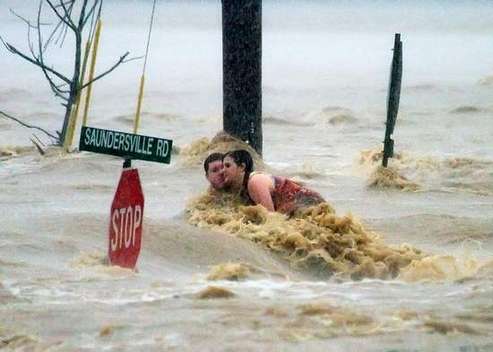Emergency Water Preparations
One of Nashville’s water treatment facilities is down due to the flooding, and local government says water should be used for cooking and drinking only. Boston had a water main break that had officials suggesting people boil their tap water to be sure it was safe to drink. Many things can go wrong with a water supply, and the time to prepare alternate water sources is now, not when something bad happens.
Thus, while it was going to be at least another week before I got into posts on water storage preparations, I think it’s important enough to move up the schedule.
At a bare minimum, Ready.gov suggests having one gallon of water available per person for 3 days. As a minimum, I would suggest enough for 7 days (28 gallons for a 4-person family) to handle events like the two described above.
An easy way to do this is to buy spring water at Walmart, usually at about a dollar a gallon. However, be prepared to rotate your water at least once a year. Meaning, drink water from your water storage, and when you finish a gallon, fill it back up with good tap water (or replace it, if you like), and repeat.
So I don’t have to fiddle with rotating, I use specific water storage containers, similar to these. Then, I add a water saver solution
that allows the water to be stored safely for up to 5 years.
I’ll discuss other options tomorrow, such as where in your home you can find water that you might not think of, as well as using bleach, boiling, and other methods of making water safe to drink.
All that said, I highly recommend everyone go out today and stock some water away now, before you need it.



